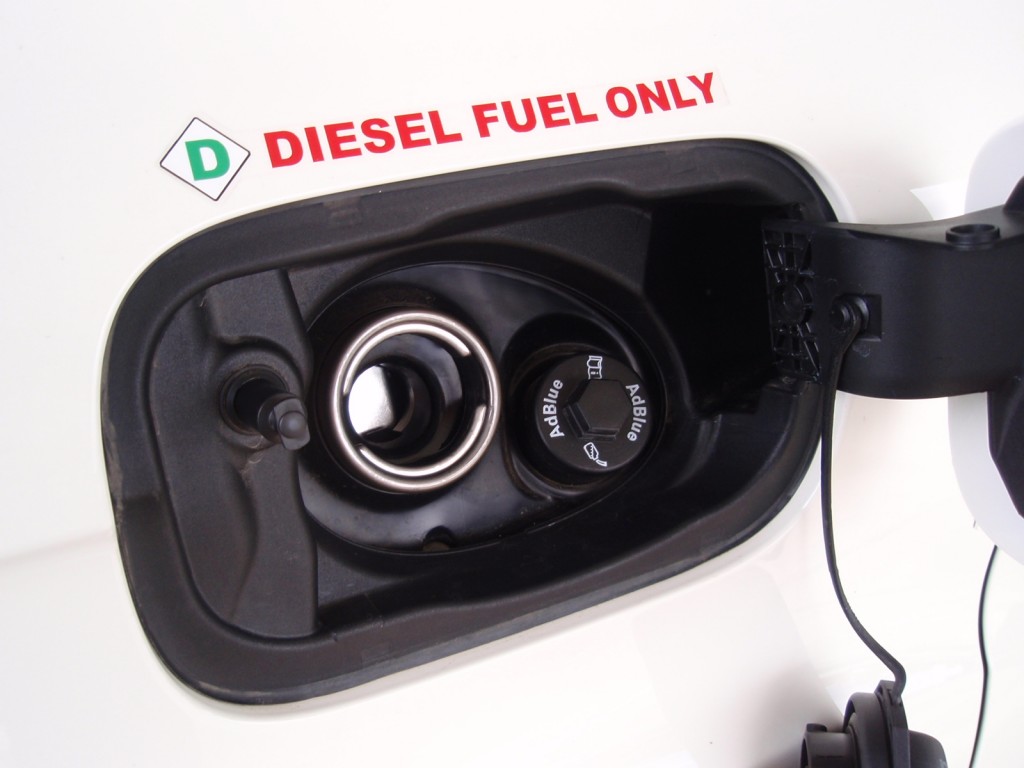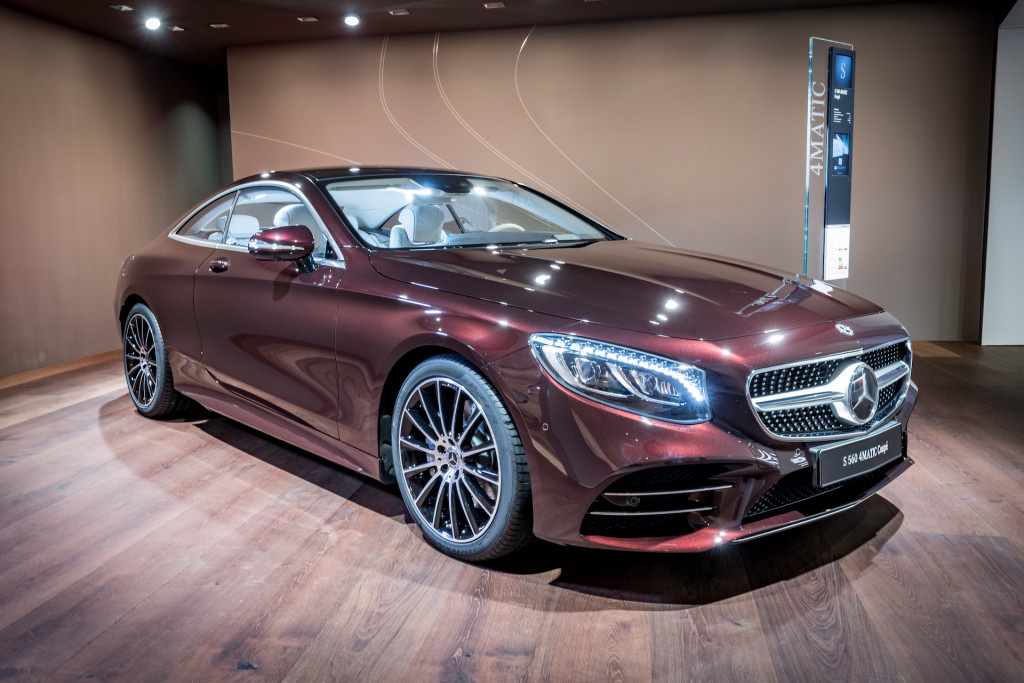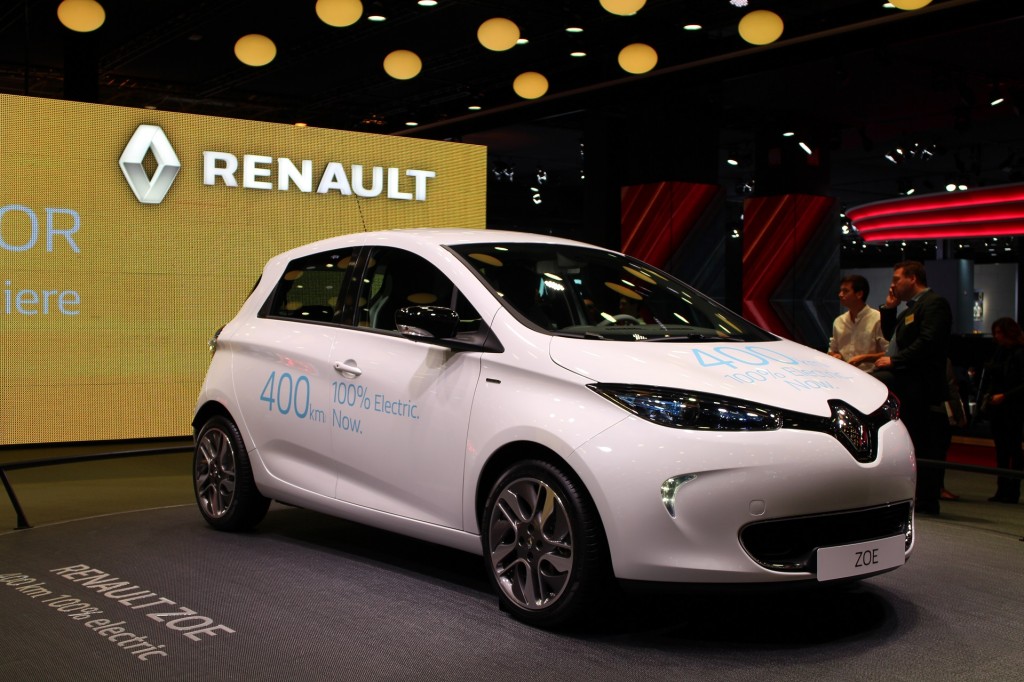You can smell the diesel exhaust in any city in Europe, sometimes even before you hear the clatter from under the hood of every other passing vehicle.
The Volkswagen diesel scandal that broke in September 2015 brought a laser focus to the software used in all diesel engines, and their inability to meet emission limits in real-world use.
At the Geneva auto-show media days, starting with events Monday evening and continuing through Tuesday and Wednesday, the messages about the future of diesel were decidedly mixed.
DON'T MISS: Fiat Chrysler to end diesel engines in cars by 2022 (but not trucks)
You might expect Volkswagen Group to be the most discreet, given the $25 billion or more it has paid out in buyback costs, civil and criminal penalties, and other costs in the U.S. alone.
But, as noted by Bloomberg on Tuesday, its CEO Matthias Mueller said the company feels diesel engines "will see a renaissance in the not-too-distant future" because drivers will realize they provide a "very comfortable" way to drive long distances.
“Once the knowledge that diesels are eco-friendly firms up in people’s minds," Mueller continued, "then for me there’s no reason not to buy one.”

'Diesel fuel only' caution on Audi Q7 TDI
The diesels sold by Volkswagen, Audi, and several other VW Group makes are now largely fitted with selective catalytic reduction treatment systems that inject urea solution into the exhaust to convert nitrogen oxides into emissions of nitrogen and carbon dioxide.
The vast majority of diesels on European roads today, however, do not have those systems. The rules that effectively required them came into force only on January 1, 2017, fully nine years after similar limits in the United States took effect.
For the past decade or more, about half the passenger vehicles sold in Europe have been fitted with fuel-efficient diesel engines, though the numbers vary a lot by country.
CHECK OUT: German court rules cities may ban older diesel vehicles
Numerous European cities are in the process of banning older vehicles with the highest-emitting diesel engines to reduce emissions and improve their air quality.
Buyers, meanwhile, hear continuing news of required modifications to diesel-engine software and the worries of diesel owners that their used cars will be worth less.
In contrast to VW's statement of confidence, Toyota announced this week it would no longer sell any vehicles in Europe fitted with diesels, instead stressing the low-emitting hybrid cars it pioneered 20 years ago.

Mercedes-Benz S-Class Exclusive Edition
The challenge, as a Reuters report from the Geneva show underscores, is that ebbing consumer desire for diesels only exacerbates the real challenge for automakers: staying within carbon-dioxide emission limits that get progressively more challenging over the next 10 years and beyond.
It's worth noting that the diesel-emission cheating problem was not with emissions of carbon dioxide, but nitrogen oxides, a major contributor to urban smog.
Because diesels have historically been more efficient in energy use than gasoline engines of similar output, they emit somewhat less carbon dioxide per mile driven.
Carbon dioxide is the major contributor to the vastly increased percentages of atmospheric carbon that have changed the climate and produced the more extreme weather patterns attributed to global warming, which is why limits on its emissions are ratcheting steadily upward.
German carmakers in particular are known for their large and luxurious vehicles, which are harder and more costly to electrify than the smaller cars from, say, Renault Nissan or Peugeot Citroen.

Longer-range Renault Zoe electric car, introduced at 2016 Paris Motor Show
It fell to VW Group's CEO Mueller to summarize the problem all carmakers face in Europe and elsewhere over the next decade.
“The rules of the game in the EU in relation to climate protection and emissions goals on CO2," he said, "are so challenging that governments cannot do without diesel."
"If there’s less diesel, then getting to that goal just gets tougher.”
Implicit in Mueller's statement, of course, is that while VW Group may have sinned in the past on diesel emissions, it is no longer doing so now, nor will it in the future in the diesel engines it needs so badly.













